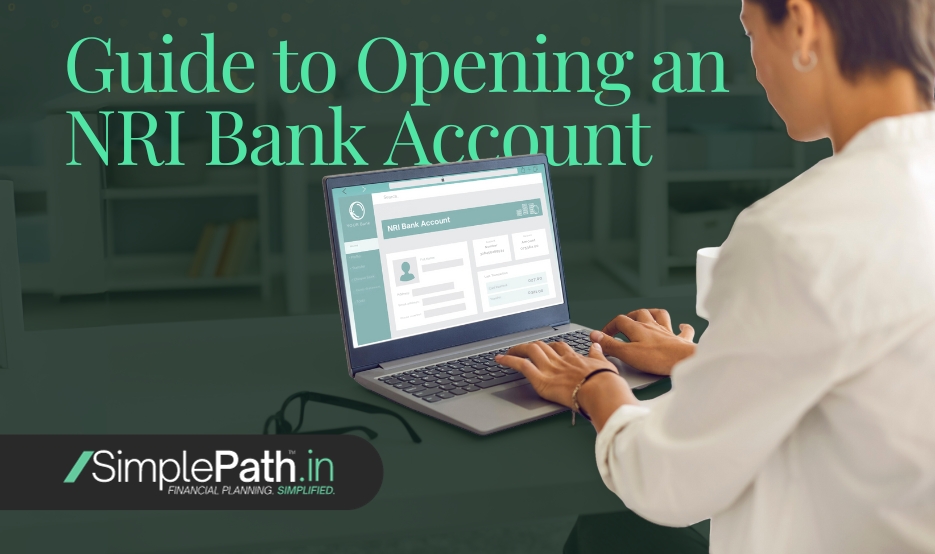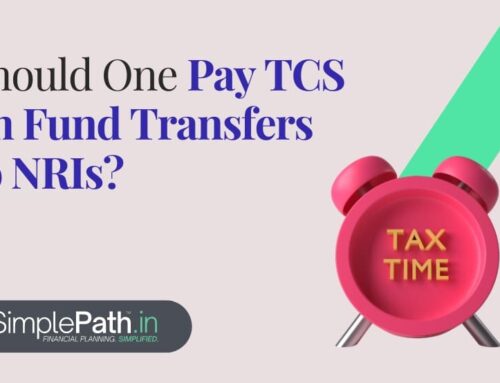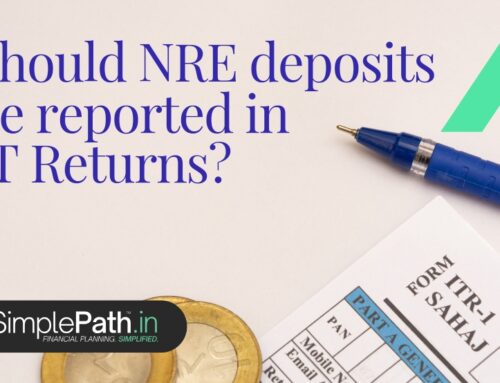In the modern global landscape, Non-Resident Indians (NRIs) often seek secure and convenient banking solutions that cater to their financial needs back home. Opening an NRI bank account is a crucial step toward managing finances, investing, and ensuring a seamless connection with India. Here’s a detailed, step-by-step guide to assist in this essential process.
Understanding the Need for an NRI Bank Account
Why Open an NRI Bank Account?
- Remittance and Investments: Facilitates sending money to India and investing in Indian markets.
- Tax Compliance: Helps in managing income earned in India and fulfilling taxation requirements.
- Financial Security: Ensures a secure avenue for family support and financial transactions.
Types of NRI Bank Accounts
1. NRE (Non-Resident External) Account
- Features: Repatriable, denominated in foreign currency, tax-exempt in India.
- Use: Ideal for maintaining foreign earnings and income from Indian sources.
2. NRO (Non-Resident Ordinary) Account
- Features: Non-repatriable, can hold income earned in India, subject to Indian taxes.
- Use: Suited for managing income earned in India, rental income, dividends, etc.
3. FCNR (Foreign Currency Non-Resident) Account
- Features: Holds foreign currency deposits, repatriable, no exchange rate risk.
- Use: To park foreign earnings in a designated currency.
Step-by-Step Guide to Opening an NRI Bank Account
Step 1: Choose a Bank
Research and select a bank offering NRI banking services, considering factors like reputation, services provided, and convenience.
Step 2: Select the Account Type
Decide on the type of account based on your financial needs – NRE, NRO, or FCNR. Read about Understanding NRI Banking and Accounts.
Step 3: Gather Required Documents
- Passport with a valid visa
- Proof of NRI status via a valid Employment Permit, Residence Visa, or Student Visa
- Overseas & Indian address proof
- Copy of PAN card or Form 60
- Passport-sized photographs
Step 4: Application Process
- Fill out the application form provided by the chosen bank.
- Submit the required documents either online or at the bank’s branch office.
Step 5: Verification and KYC (Know Your Customer)
- The bank will verify the documents submitted and conduct KYC procedures.
- In-person verification might be necessary through video calls or in-person visits to a bank branch or embassy/consulate.
Step 6: Account Activation
Upon successful verification, the bank will activate the NRI account and provide the account details.
Step 7: Fund the Account
Transfer funds from your overseas account to the newly opened NRI account using wire transfer or other permissible means.
Step 8: Manage Your Account
Access the account online or through the bank’s mobile app to manage transactions, investments, and other banking activities.
How often do NRIs have to provide KYC?
The frequency of Know Your Customer (KYC) updates for Non-Resident Indians (NRIs) can vary based on a few factors:
- Periodic Review: Banks and financial institutions often conduct periodic reviews of KYC information. This can range from every two years to every ten years, depending on the bank’s policies and regulatory requirements.
- Change in Circumstances: If there’s a significant change in an NRI’s circumstances, such as a change in address or citizenship, the bank may request updated KYC information promptly.
- Regulatory Changes: Regulatory authorities might introduce new guidelines or mandates for updating KYC information, which could prompt banks to request updated documentation from their NRI customers.
- Specific Transactions: For certain high-value transactions or specific banking activities, the bank might ask for updated KYC information as part of their due diligence process.
It’s essential for NRIs to stay informed about their bank’s policies regarding KYC updates and be prepared to provide updated information or documents when requested. Keeping the bank informed about any changes in personal details or contact information can also facilitate smoother KYC compliance.
What if you miss the periodic KYC update?
Missing the periodic Know Your Customer (KYC) update for an NRI bank account can result in certain consequences:
Account Restrictions:
- Limited Transactions: The bank might restrict certain transactions or services associated with the account until the KYC is updated.
- Freezing of Account: In extreme cases or prolonged non-compliance, the bank might freeze the account temporarily until the necessary KYC updates are provided.
Communication and Notifications:
- Reminders: Initially, the bank typically sends reminders through various channels (email, SMS, or physical mail) to remind customers about the pending KYC update.
- Notifications of Restrictions: The bank may notify account holders about any restricted services due to pending KYC compliance.
Account Deactivation:
In cases of prolonged non-compliance, the bank might proceed with account deactivation or closure procedures.
Re-Activation Process:
- To reactivate the account or restore full functionality, the account holder would need to visit the bank or complete the required KYC update process as per the bank’s guidelines.
- This may involve submitting updated documents or undergoing verification processes.
Preventive Measures:
To avoid such situations:
- Stay Informed: Regularly check communications from the bank and stay aware of their policies regarding KYC updates.
- Timely Compliance: Ensure timely submission of any requested documents or information for KYC updates.
- Contact the Bank: If there’s a delay or difficulty in providing updated KYC details, it’s advisable to communicate with the bank and seek guidance on the necessary steps.
Missing the periodic KYC update may result in restricted account functionalities or, in extreme cases, account freezing or deactivation. However, most banks try to communicate and provide ample time for customers to comply before taking stringent actions. It’s essential to stay proactive and responsive to the bank’s requests to maintain a smooth banking experience.
Are there any bank charges for NRI account?
Yes, there can be various charges associated with maintaining an NRI (Non-Resident Indian) bank account. These charges can vary based on the bank, type of account, services availed, and the account holder’s specific requirements. Here are some common charges:
Account Maintenance Charges:
- Monthly/Quarterly/Annual Fees: Some banks charge a maintenance fee for NRI accounts, which can vary based on the type of account and average balance maintained.
Transaction Charges:
- Wire Transfer Fees: Charges may apply for inward and outward remittances (local and international).
- Currency Conversion Fees: If transactions involve currency conversion, banks may levy charges for the conversion.
Other Fees and Charges:
- ATM Withdrawal Fees: Charges for using ATMs may apply, especially for transactions at non-partner bank ATMs.
- Debit Card or Checkbook Issuance: Some banks may charge for providing debit cards or chequebooks.
- Statement Charges: Physical statements or additional statements beyond a certain limit may have charges.
Service Charges:
- Dormant Account Fees: If the account remains inactive for an extended period, banks might levy charges.
- KYC Update Charges: Some banks may charge for updating KYC details or documentation.
Investment and Trading Charges:
- If the NRI account is linked to investments or trading, there might be charges associated with those activities, such as brokerage fees, demat account charges, etc.
Specific Services:
- Some premium services like priority banking or wealth management for NRIs might come with additional fees.
It’s crucial to review the bank’s schedule of charges or fee structure specific to NRI accounts before opening an account. Banks typically provide this information on their websites or in branch offices. Understanding these fees and charges in advance can help in making informed decisions about which bank and type of NRI account align best with one’s financial needs and preferences.
Recommended Banks for NRIs with Online Application Facility
Conclusion
Opening an NRI bank account is a pivotal step for NRIs to manage their finances, investments, and remittances efficiently. Understanding the types of accounts available and following the outlined step-by-step process can streamline this essential financial undertaking, ensuring a secure and convenient banking experience for NRIs.





